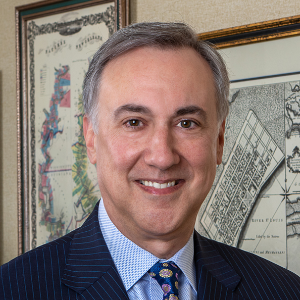The Benefits Review Board (BRB) has held for the first time that an audiologist is a “physician” within the meaning of the Longshore and Harbor Workers’ Compensation Act, 33 U.S.C. §901, et seq. Reversing its earlier ruling in 2017, the Board held in a two-to-one decision that an audiologist is within the definition of “physician,” and a longshore worker has the right to choose an audiologist to provide evaluation and treatment.
JONES V. HUNTINGTON INGALLS, INC. – BACKGROUND
In the claim at issue, Jones v. Huntington Ingalls, Inc., BRB No. 16-0690 (07/30/2021), the Claimant sought authorization to be fitted with hearing aids by the audiologist who diagnosed his hearing impairment. The Employer did not dispute that Claimant could be treated for his hearing loss by an audiologist under the Act, but argued he was not permitted to choose which audiologist provided the service of fitting him with hearing aids.
THE AMBIGUITY OF “PHYSICIAN” UNDER THE LONGSHORE ACT
Section 7(b) of the Act provides that an “employee shall have the right to choose an attending physician authorized by the Secretary to provide medical care under this chapter as hereinafter provided.” According to the majority, an “employee’s initial choice of physician plays a vital role in developing a claim with lasting implications for the treatment of his work injury.”
The Act does not define “attending physician” for the purposes of 33 U.S.C. §907(b), nor does it define the term “physician” in any of the thirty-three other instances the term is used in four sections of the Act. However, the implementing regulations, in 20 C.F.R. §702.404, does define physician.
There it states: “The term physician includes doctors of medicine (MD), surgeons, podiatrists, dentists, clinical psychologists, optometrists, chiropractors, and osteopathic practitioners within the scope of their practice as defined by State law…Naturopaths, faith healers, and other practitioners of the healing arts which are not listed herein are not included within the term “physician” as used in this part.”
Notably, audiologists are not included in this list. The majority opinion stated that in the 1984 amendments to the Act, Congress granted “special status” to audiograms performed by certified audiologists and otolaryngologists. Those audiograms are required to trigger entitlement to benefits and medical care under the Act.
THE BRB DECISION
The majority conceded that the statutory language is ambiguous. Section 7(b) of the Act does not answer whether Congress intended audiologists to be treated as physicians and the term “physician” is not defined elsewhere in the Act. But it found that Congress “unequivocally equated” physicians and audiologists in the diagnosis of hearing loss, and that “reading the term “physician” to include audiologists for purposes of Section 7(b) best harmonizes the Act.”
THE IMPACT OF THE DECISION
The impact of this decision will be significant to employers and carriers under the Act, as they will now be unable to provide reasonably priced hearing aids for workers with hearing loss. Audiologists typically “mark up” the costs of hearing aids significantly, so in addition to their professional services in fitting a set of hearing aids, they will also profit from the sale of hearing aids to their patients.
Jones v. Huntington Ingalls, Inc., BRB No. 16-0690 (07/30/2021)
















